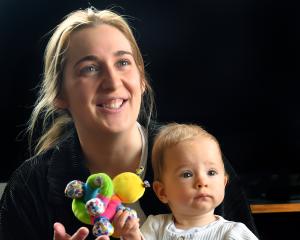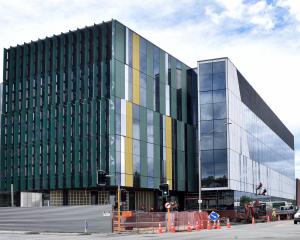
In response, the Southern District Health Board admitted yesterday it should have told patients earlier.
More than 4600 patients have been notified they are overdue for their ophthalmology appointment. In the past two years, 34 patients have lost part of their sight permanently, and that number is likely to increase.
The board has known about the problem since September 2014 when concerns were raised in Southland. In December last year, when the problem first became public, it said it was under control.
Tauranga ophthalmologist Dr Peter Haddad worked as a locum from March to May last year, and discovered patients were waiting too long, and it was unsafe. When he returned to Southland in October for another stint, there was still a "huge backlog".
In June last year, he contacted then chief executive Carole Heatly, and the Health and Disability Commissioner about his concerns. Yesterday, he said the board should have handled things very differently.
"It’s unethical to run a department that is so far behind without notifying the patients at the time.
"Not just suddenly do it when it all blows up in your face, which is really what’s happened.
"You haven’t given [patients] the choice, so they don’t know there’s a problem and I think that’s grossly unethical."
Many patients would choose to pay for a private appointment if they knew the risk, he said.
Dr Haddad said the board should consider stopping cataract work for a time in order to concentrate on glaucoma and diabetic retinopathy. Sight loss from cataracts was reversible, but it was irreversible for glaucoma and diabetic patients.
"Those are two situations where the patient does not know that things are getting worse. They are totally unaware of it."
Dr Haddad said he was coming to Dunedin around March next year to work as a locum, and he hoped his decision to speak out would not affect that.
Boards were pushed to do more and more cataract cases, he said.
"The Government is totally obsessed with cataracts."
Interim chief executive Chris Fleming said the board should have told patients earlier.
"We apologise for not recommending patients explore other options sooner; we should have done so."
Meanwhile, Health Minister Dr Jonathan Coleman has refused to answer questions from the Otago Daily Times.
In Parliament, Dr Coleman cited the sacking of health board members in June 2015 in response to a question from Labour’s Annette King about the ophthalmology problem.
The ODT asked Dr Coleman if he was satisfied the commissioner had done a better job than the elected board members, given the problem ballooned after the commissioner was installed.
"The minister has nothing further to add to his comments," Dr Coleman’s spokeswoman told the ODT.
Timeline
September 2014: Concerns first raised about Southland Hospital eye appointment delays.
March to May 2015: Locum ophthalmologist Peter Haddad worked at Southland Hospital.
June 2015: Dr Haddad contacts then chief executive Carole Heatly, and Health and Disability Commissioner about concerns.
October 2015: Peter Haddad returns to SDHB and finds "huge backlog" of patients.
December 2015: National adverse events report shows cluster of four patients who lost part of their sight due to delays.
December 2015: SDHB says it has increased resources and taken other measures.
January 2016: Gore man Koby Brown speaks out in ODT about total sight loss in one eye.
June or July 2016: Commissioner Kathy Grant is told Dunedin Hospital also has waiting list problem, and did not disclose issue publicly.
October 2016: SDHB notifies more than 4600 patients who are overdue for eye appointments, and discloses a further 30 cases of sight loss ahead of the release of the 2016 adverse events report.
November 2016: An 0800 number receives 133 calls in the first three days.
Comments
Unfortunately, when you hire a bunch of people whose primary focus is cutting the budget then ancillary functions such as people's health come a distant second. I truly feel sorry for the poor people made blind by the money-focused mob currently running the SDHB. I am amazed someone hasn't already started a class action against the SDHB.
I have real concern that as functions are removed from Dunedin as part of the restructure being driven by Government, Treasury and the fly-in mob, we will see even worse future outcomes. Treating the south's patients in Christchurch may save money, but it won't save lives.












